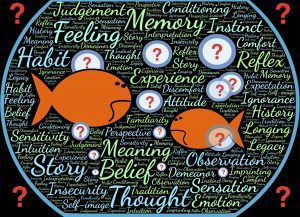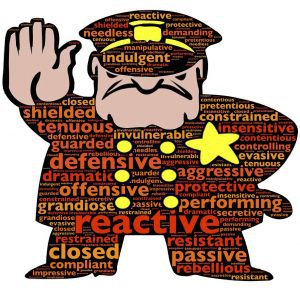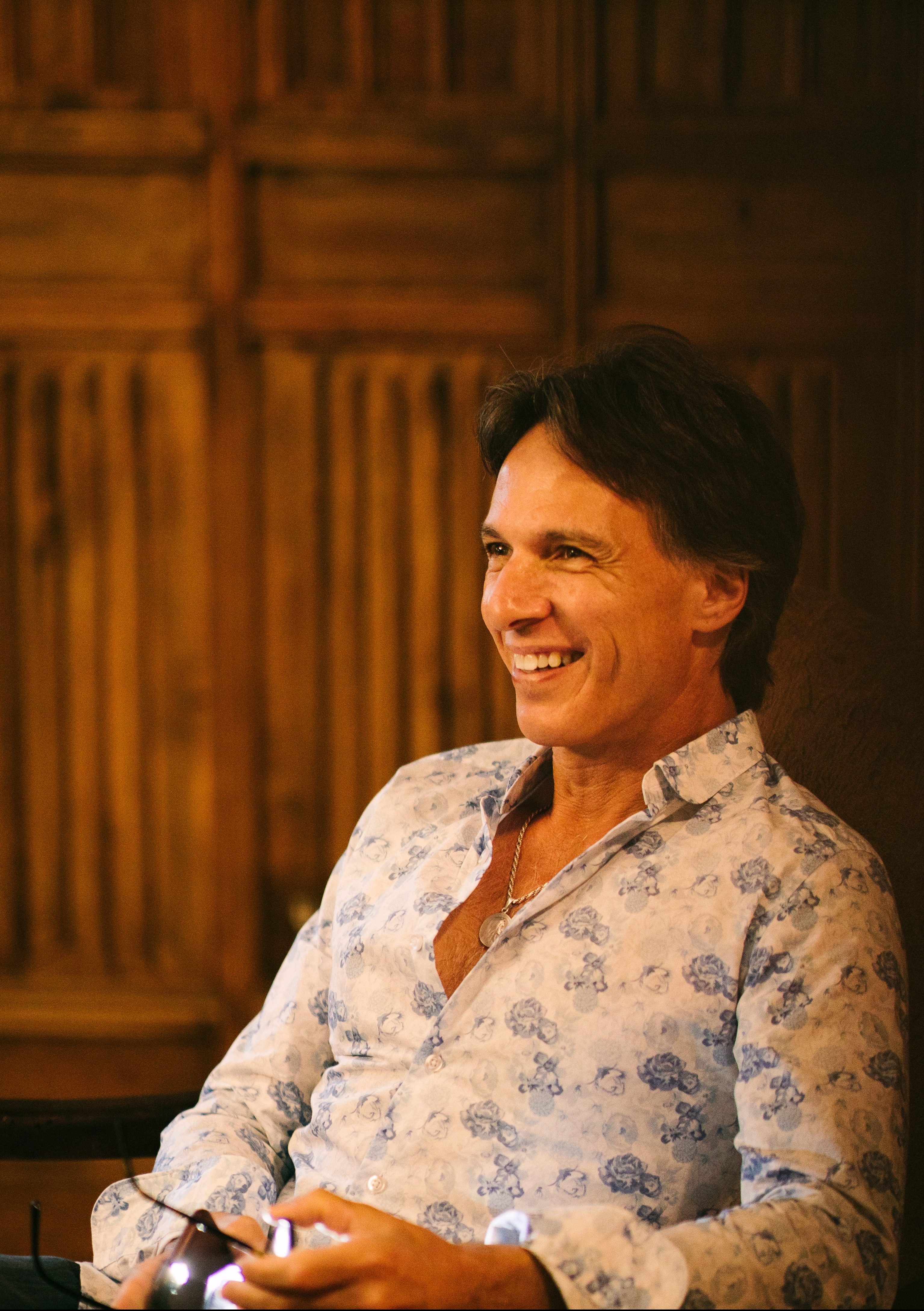
Recently, on a night flight from Cancun to Los Angeles, an unusual, but revealing, conversation ensued. As I buckled myself into the spacious leather seat, I couldn’t help overhear the cell phone conversation of the woman sitting next to me.
At first, I didn’t give it much thought, as I was too pre-occupied sipping champagne and enjoying the attention I was receiving from the lovely flight attendants. However, as the plane prepared for takeoff, the festive dynamic suddenly turned awkward when the woman began shouting at whomever was on the other end of her phone.
It didn’t take long to notice a recurring theme in the words she expressed. It became painfully obvious that she was not only playing the role of victim, but she was also playing the blame game by using phrases like, “You did this to me, it’s all Your fault, and You’re making me upset.”
As I was about to put my headphones on to tune out the negative vibes, I suddenly began to feel a sense of compassion for this woman’s helpless state of being. I thought to myself, “Wow, doesn’t she realize that she is giving all of her power away by believing that someone else is responsible for the way she feels?”

Just then, the flight attendant approached and insisted that she immediately terminate her call as we were now taxiing down the runway. After grudgingly hanging up, she sat there without saying a word, but her energy spoke volumes. I could sense that she was feeling ill, and it was clear by the look on her face that all her inner turmoil was beginning to take its toll on her state of well-being. Despite her symptoms, she seemed determined to sit there and reinforce in her mind the belief that she was the victim, and therefore, in the right.
It wasn’t difficult for me to assess her inner dialogue because as soon as she downed her glass of champagne, she turned to me and said, “I am sorry you had to hear that, but some people just don’t get it.”
I replied, “It’s okay, but I’m not sure what you mean. Get what?”
“The person I was just talking to, they were being abusive. They think they can say whatever they want and not take responsibility for hurting my feelings.”
“I see,” I replied.
She continued, “That’s why I was giving them a piece of my mind. If only more people would do the same and stand up to these abusive people, the world would be a much better place.”
After listening to her complaint, my mind became flooded with an array of retorts, but instead of rushing to respond, I first made myself available to understanding her perspective.
I asked, “Why are you giving your power away to that person, or anyone else for that matter?”
“What do you mean?”
“Well, when you allow someone to ‘make you feel’ anything, whether it be upset, angry, happy, or sad, you are allowing them to control your emotions. You are stronger than that. Why don’t you just make yourself happy?”

She turned and stared out the window. After a few seconds, I whispered,
“You do realize that you are the only one who is responsible for the way you feel… right?”
Looking back at me, she replied, “But I don’t believe that’s being realistic, and it’s certainly not the way it is.”
“Ah, but there is no such thing as the way it is, there is only the way we are.”
“Wait…What?”, she muttered.
I smiled and explained, “A belief is just a thought that is practiced over and over, and when a belief is charged with emotion, it becomes embedded in our subconsciousness, and the content of our subconscious mind is what we know as the way it is. So, you see, the way it is, is really just, the way we are”.
She paused and then replied, “Okay, whatever, but that doesn’t change the fact that people who disrespect my boundaries are instigating trouble and really piss me off.”
It became obvious that we were not really communicating, so I tried a more direct approach.
“Perhaps the problem is the fact that you have boundaries. In setting boundaries you are expecting others to modify their behavior to make you happy.”
With a bewildered look she said, “But everyone should have boundaries. How else can we control things without boundaries?”
I leaned in a little closer and softly replied, “Well, to begin with, by simply controlling ourselves and our responses.”
After another pause, this time a little more agitated than before, she said, “But the people who are overstepping my boundaries are clearly creating the problem.”
I could see that she was becoming upset again, so I contemplated aborting the conversation, but I didn’t want to turn my back on her, so I kindly asked, “Would you prefer if we just ended our conversation and enjoyed the rest of the flight without talking?”
Before she could answer, the flight attendant returned with two snifters of cognac, some brie, and fresh berries. After we both sipped our drinks she said,
“No, please, I really want to continue our conversation. I appreciate your perspective and where you’re coming from…”
I smiled because I felt a ‘but’ coming.
Sure enough, “But, I’m just sayin’, it’s the people who violate my boundaries that are causing all the problems, and I’m not going to stand for it!”
Proceeding with caution, I said, “Did it ever occur to you that maybe it’s the other way around?”
“What do you mean?”, she adamantly replied.
I knew my next statement was bold, but my heart was in the right place, so I just went for it and said, “Perhaps it’s all the complaining, blaming, and victim playing that’s causing all the problems.”
She shouted, “That’s ridiculous! I have to stand up for myself, don’t I?”
Calmly, yet confidently I said, “Well, that depends. If by standing up for yourself you mean reprimanding and holding others responsible for your feelings, then no.”
She defiantly replied, “Well, I believe differently, and we are all entitled to respond as we each see fit.”
“Absolutely! Of course, we are, and I couldn’t agree with you more, but I’m sure you’d also agree that it’s important to recognize the effect our beliefs and responses have on our reality.”
“Yeah, but what’s your point?” she replied.
I could see I still wasn’t getting through, so I decided to ask her a question to see if I could spark a shift in her current belief system.
I asked, “Do you ever wonder how it’s possible that two different people can experience the same exact event and have two totally different outcomes?…”
As she processed the question, I peered through the window. The contrast between the bright blinking lights and the dark night sky had me mesmerized. After a few minutes without hearing a reply, I turned to her and politely said, “The answer is simple, they responded differently!”
She flashed a hint of a smile but still no reply.
I continued, “And what do you think is one of the primary components which determines an individual’s response?”
“Their beliefs?” she replied.
“Exactly! So, if we are able to change our beliefs, we are able to change our response, and if we are able to change our response, we are able to change our outcome. Does that make sense?”
“I think so,” she replied.
I continued further, “And when you master your thoughts and emotions, you gain ultimate self-control, and when you have self-control, there is no need to control others.”
She sat there for a long time just staring out the window, and just when I was about to ask her if she was okay, she turned to me with a playful grin and said, “I think I’m going to need another drink.”
We both laughed, and when the flight attendant returned with our drinks, she asked us to stay buckled in our seats due to an approaching storm. Looking out, we could see lightning flashes on the horizon, but neither of us seemed to mind, in fact, the ominous weather added to the ambiance of our conversation.

Just then the plane hit a little turbulence which forced her to lean into me, so in a hushed voice, I continued,
“I think the reason so many people struggle with their relationships is because they are more concerned with controlling the actions of others than they are on controlling their own Response.”
She simply replied, “Hmmm.”
Continuing in a lighter tone, I said, “Plus, nobody really likes hanging out with someone who is always trying to control them. You know what I mean?”
The turbulence suddenly smacked hard; everything rocked. Quickly, we both snatched our sliding snifters off the tray table. Not wanting to spill a drop, we carefully cradled our cognacs as if they were mystical elixirs and waited for things to settle.
Within moments, everything was calm again, and to my surprise, the first thing I heard was, “So, where were we?”
I smiled and replied, “Oh yeah, right. I guess what I’m trying to say is, doesn’t it make more sense to just control your own inner emotions and responses than trying to control outside events and the behavior of others?”
With a slight smirk, she replied, “But if I can control outward events, I won’t have to control my inner responses, and that’s ultimate power, don’t ya think?”
Looking her in the eyes, I said, “No, there’s something much more powerful. Have you ever tried being the deliberate creator of your own reality?”
Looking puzzled, she replied, “What are you talking about?”
Just then, as the 747 Virgin Atlantic airliner flew through the middle of a lightning storm, I realized I was about to share something that most people would find extremely obscure. I went for it anyway.

“I’m talking about being aware that your emotions and beliefs have a major influence on your perception. This inner awareness not only gives you the ability to create your own reality, but it prevents you from wasting your precious energy on trying to hold others responsible for it.”
Her response made it clear that she perceived life through a fear-based belief system, “Yeah but, if I stop holding others responsible for all the negative crap in my life, I’ll have to take responsibility for all of it…right?”
Our conversation had gone much deeper than I initially expected. By the look in her eye, I could see that she sincerely wanted an answer, so with a heartfelt approach, I said,
“Yes, that’s right, and I understand how scary that can be, but I’m here to tell ya, the juice is worth the squeeze.”
She softly smiled which prompted me to continue, “Earlier, you talked about the importance of standing up for yourself. Well, once you realize that you’re responsible for everything in your life, you also become aware that you possess the power to change the things you don’t like…and from my perspective, that’s the true meaning of standing up for yourself .”
She paused for a long time, and then in a soft, docile tone, replied, “I don’t know if I can do that; it sounds like a lot of work.”
“Of course you can. I’m sure if you give it some thought, you will see that it takes much more energy to enforce the rules you place upon others, all to ensure your happiness, than it does to control the flow of your own happiness by freeing yourself from old limiting beliefs.”

Once again, she silently stared out the window, only this time with a stoic expression on her face. Slowly she turned to me and said, “That means I’d have to change, and change is hard. I think I’m better off just staying the way I am and letting others change.”
With that I just winked, smiled, and said, “I am sure your right, and I can see by the examples you’re giving that your beliefs are working well for you.”
She just sighed and said, “Yeah, I suppose.”
As we concluded our conversation, I wished her well and left her with some advice I once received from a very wise group of beings, “Be careful how hard you argue for your limitations because if you argue hard enough, you’ll get to keep them.”
“Be careful how hard you argue for your limitations because if you argue hard enough, you’ll get to keep them.”
Putting my headphones on, I thought to myself, “For something that causes so much misery, it’s amazing just how much we human beings hold on to and defend our own limiting beliefs.”
I am sharing this story because I am sure we can all relate to having a conversation with someone whose beliefs, knowledge, education, and religion are so engrained in the fabric of their identity that they are unable to assimilate anything contradictory, no matter how compelling.
This scenario touches upon two topics that I have been passionately studying for well over 20 years, and both are extremely powerful and dear to my heart. They are topics that have not only played a major factor in my success as an entrepreneur, but more importantly, they have been instrumental in making me a happier human being. These topics of interest are BELIEFS and EMOTIONS.
Have you ever wondered why so many people hold onto old beliefs that no longer serve them? Perhaps it’s because we have been conditioned to attach our beliefs to our identity. Think about it. If you ask someone ‘who they are’,  they will most likely tell you their name and occupation. If you delve a little further, they will probably begin to tell you their beliefs, such as religious beliefs, political preference, education, degree, etc.
they will most likely tell you their name and occupation. If you delve a little further, they will probably begin to tell you their beliefs, such as religious beliefs, political preference, education, degree, etc.
Now, what usually happens if their beliefs are challenged? They will probably start defending them because if they allow their beliefs to be exposed as nothing more than thoughts that have been practiced over and over, they will fear they are in danger of losing their identity. What I find astonishing is that although our beliefs hold tremendous importance, they are not in fact “who we are.” They are just the filters that color the experiences we are having.
So who are we if not our name, occupation, religion, education, nationality, etc.? We are conscious awareness having a physical experience, each of us observing life through our own individual belief filters. So then why does it seem so difficult to USE our beliefs, instead of letting our beliefs USE us?
The answer can be found by understanding the meaning of the word Paradigm. A paradigm is a deeply rooted subconscious belief that shapes one’s perception. To shift one’s personal paradigm, however, requires more than just a new thought, it requires a harmonizing emotion which is strong enough to penetrate the subconscious mind where the current paradigm resides.
Although a paradigm shift on a mass conscious level is much less frequent, it still requires a similar emotional belief shift. The Renaissance Period is a good example of this. This historic shift took place not just on a conscious thinking level but on a much deeper subconscious feeling level. It was their ability to tap into creative emotion that allowed mankind to feel their way into a higher vibrational state of consciousness. Indeed, the term “Renaissance Man” refers to the humanist idea that we should strive to be whole which can only be accomplished by harmonizing our conscious beliefs with our subconscious emotions. This is key in attaining this holistic outcome.

It is important to recognize that our current paradigms are deeply rooted within our subconsciousness, and therefore, to shift a paradigm you must penetrate it with powerful emotion. The subconscious mind has to literally believe that your new thought is real, and the only way to accomplish this is by feeling as if it is, in fact, real. In other words, do not feel that your new thought or desire is something you want, but rather, feel that your new desire is something you “have.” If you believe it and feel it, then it shall be.
The reason most people struggle with this is because they have been deeply conditioned to think in the following limiting terms, I’ll believe it when I see it. Yet, astonishingly enough, our true potential resides in the opposite sequence, which is, I’ll see it when I believe it.
I find it sadly ironic that something so powerful and inherent within us all is not taught nor recognized by mainstream education and society in general. This is why many highly educated individuals do not see positive results in their finances, relationships, and life in general. No matter how strong a thought, it cannot and will not change one’s reality without combining that thought with a harmonized, unshakeable, subconscious emotion.
So how does this all tie into the woman on the plane? Well, she was unable to shift her own paradigm simply because she was unwilling to change her emotional subconscious belief that she was a victim. She chose to not believe that she possessed the power to create her own reality. Therefore, for the time being, her perception continues to mirror a victimized reality.
We can now see that holding others responsible for our plot in life is nothing to be proud of, however, holding ourselves responsible for being the deliberate creators of our own reality is not only a sign of the highest achievement but indeed the path to true mastery.
As I conclude this article, I will leave you to ponder this: there is no Universal Law of Assertion, but there is, however, a Universal Law of Attraction. Thus, you cannot assert your way to joy, but you can attract joy to you. So, enjoy your reality because you are its creator. Cheers!
~ Daniel Pape


